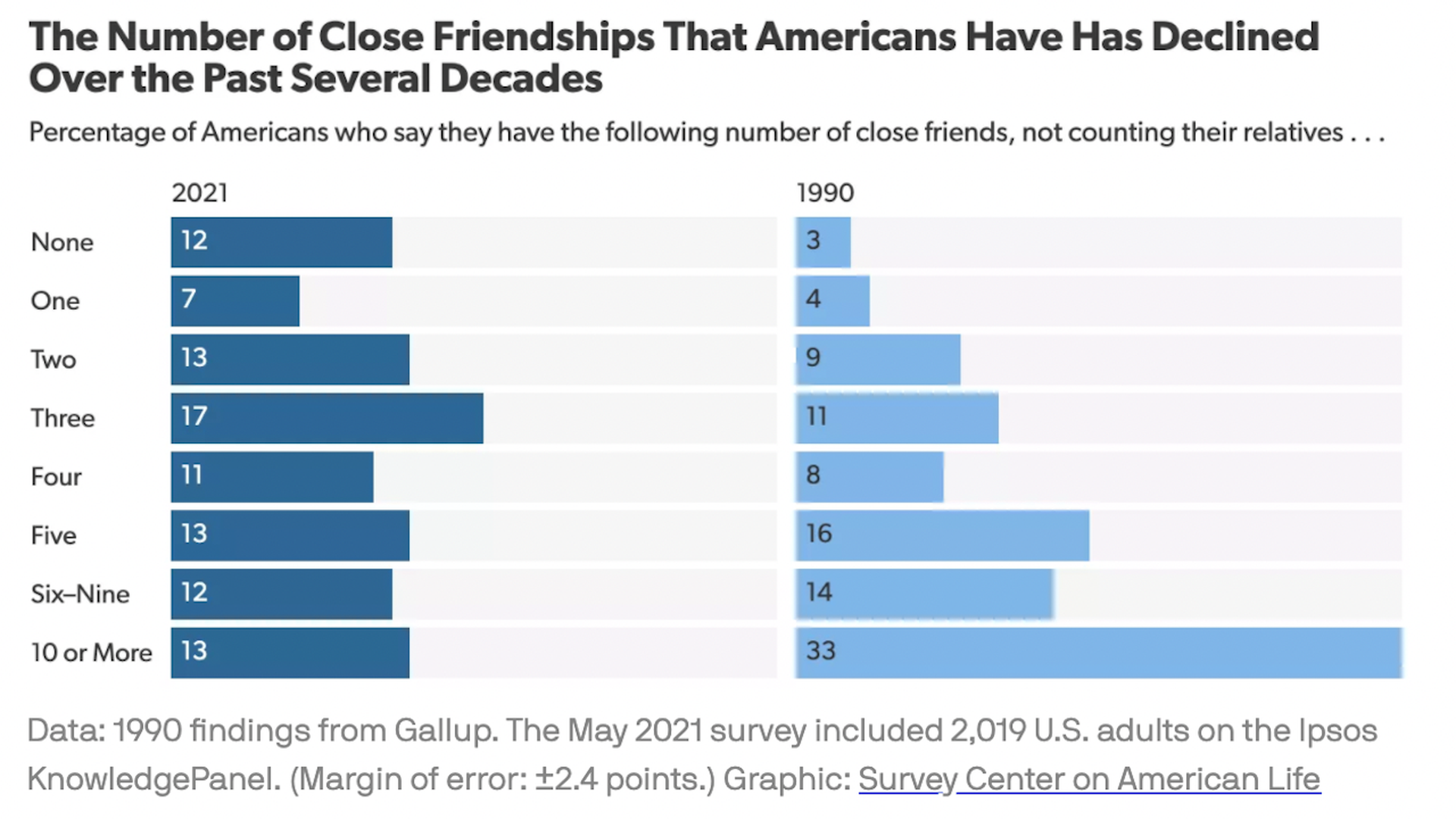America's "Friendscape" crisis
Add Axios as your preferred source to
see more of our stories on Google.

New research shows Americans have fewer friends than in the past, and are less likely to have a best friend.
- Why it matters: At a time of excruciating mental and societal stress, this is another sign we're breaking apart. And the friendship drought could get worse with more people working remotely or hybrid-ly.
Here are two key findings, from May polling by the Survey Center on American Life, a project of the American Enterprise Institute:
- Our number of close friends has declined considerably from 30 years ago, when 33% of U.S. adults reported having 10 or more close friends, not counting relatives. Now, 13% say that.
- In 1990, 75% of us said we had a "best friend." This year, 59% said that.
AEI senior fellow Daniel Cox, who conducted the research, told me that as he's discussed the findings on podcasts and online, people get it: "Everyone has their own anecdote."
- "We realize the importance of friendship, and we're just not investing the time," he said, adding that it's another way the nation is "vulnerable."
I got a different lens from Kate Murphy, a Texan who is author of "You’re Not Listening," and wrote for the N.Y. Times (subscription), "The Pandemic Shrank Our Social Circles. Let’s Keep It That Way."
- In urging the curation of friends, Murphy cited Suzanne Degges-White, chair of counseling at Northern Illinois University, for the term "friendscape."
- "People want fewer and better friends," Murphy emails. Pre-pandemic, "we were in the grips of a loneliness epidemic. That loneliness wasn’t necessarily from being alone. In fact, it was often a feeling of alienation while in the presence of other people."
I love this: "You can be friendly with a lot of people but you can only have a few good friends," Murphy added. "An occasional lunch, back slap at a cocktail party or exchange of texts is sociability but not social support."
[W]hen your social life becomes a mad dash between events driven by FOMO, you don’t have the time or emotional energy to develop those truly meaningful relationships and attachments that are essential to human health and happiness. And, of course, engaging with people digitally is a poor facsimile. The pandemic showed us that for sure.
Context: This trend is nothing new, of course. Robert Putnam's bestselling "Bowling Alone: The Collapse and Revival of American Community," was published in 2000 — 21 years ago.
- Go deeper: Explore the data.
